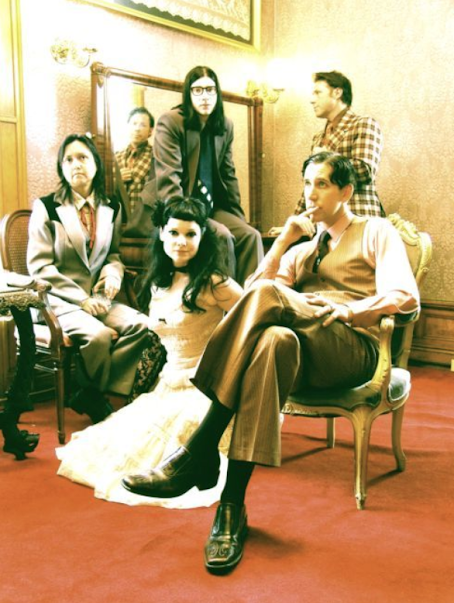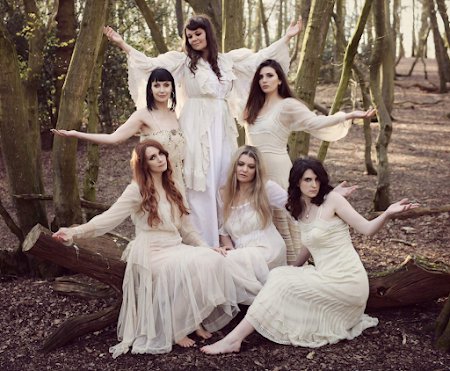#Emmylou Harris #Alison Krauss #Gillian Welch #Americana #folk #traditional #movie soundtrack #O Brother Where Art Thou
Most famously heard in the movie "O Brother, Where Art Thou", the traditional lullaby "Didn't Leave Nobody but the Baby" is performed by artists Emmylou Harris, Alison Krauss, and Gillian Welch. This song appears to be a southern folk song, and was also previously recorded by Sidney Hemphill Carter in 1959 and ethnomusicologist Alan Lomax in 1942. What is the history, origins and meaning of the lyrics in this song? It appears to be a song born out of the anguish of slavery (as noted by former slave Annie Little in the Federal Writers' Project: Slave Narrative Project, Vol. 16). I have however, heard that this may depict a father trying to keep his baby quiet by giving it morphine in order to hide him from a slaveowner (perhaps on the underground railroad, or possibly in order to commit infanticide). Is there any reputable, authoritative evidence that this is the case?
My grandmother, who recently passed at 98 years old, used to sing this to me and she said her grandmother who was a slave sang it to her. She said all the mammies used to sing this to their children.
This is a Black American folk song, originating in the slavery era. At that time, it was dangerous for enslaved people to speak openly about their concerns, so many songs of the era have hidden or concealed meanings. As a folk song, however, neither the lyrics nor the interpretations are fixed, so it can be difficult or impossible to make a definitive determination. Like many of the most popular lullabies and nursery rhymes of many traditions (compare Rock a Bye Baby or Ring Around the Mulberry Bush) there's some dark and ominous imagery here. It's perhaps most instructive to compare it to All the Pretty Horses, another lullaby with similar origins, and a more established meaning. As in that song, we can surmise that this song is being sung by an enslaved caretaker of a baby belonging to the slavemasters, leading to a mix of tenderness and anger in the lyrics.
Your momma gone away and your daddy's gone to stay
Didn't leave nobody but the baby
The "momma" having gone away indicates that the woman singing is not the baby's actual mother. Likewise, the baby's father is also out of the home.
Everybody’s gone in the cotton and the corn
Didn't leave nobody but the baby
With all the masters gone, the baby is at the mercy of its caretaker.
She's long gone with her red shoes on
Gonna need another loving baby
The mother is out having fun, and doesn't care what happens to her child. She might need a new one, because her current child may not have long to live.
You and me and the devil makes three
Don't need no other loving baby
This moves more into pure speculation, but "don't need no other loving baby" may be a veiled reference to her being unable to take care of her own children (as in All the Pretty Horses) because of being forced to caretake her master's child. The devil is present, because she is having fantasies about killing the baby in revenge.
Come lay your bones on the alabaster stones
And be my ever loving baby
This seems like the most clear threat in the song - the alabaster stones, are, of course, the headstones in the graveyard. Compare also "Summertime," as discussed here: What's the origin of the phrase "Rise Up Singing"? Although not an authentic slave-era lullaby, "Summertime" draws upon many of the same themes, including the caretaking of someone else's child, and the veiled threat.
This is a song that seems to have originated among slaves in the southern US and has been passed on orally from generation to generation by people who might not even have been able to write, so there is no 'authoritative' version of the lyrics. So, of course, no interpretation of those lyrics is going to be 'authoritative'. There are probably almost as many different interpretations as there have been attempts at interpretation. A recurring theme in these is that the baby has been abandoned by both parents and the singer is preparing to poison it, but there are plenty of other variations.
Funny. I’ve been singing this to my kids for the last 12 months. They love it. Knocks them out every time. But I always forget the words because I can’t think of the story. Really interesting. I mentally started to wonder if it was a seductive song, but mostly because of the imagery from “Oh Brother Where Art Thou”. If you think of it from the perspective of someone trying to seduce a man while his “momma’s gone away” you can almost force some meanings as well. Don’t need another lovin’ babe - you and me and the devil make three. And then a bit of a Romeo and Juliet moment. Or maybe now that I’m reading that it was maybe a slave song. Then there’s the inevitable death that will occur if the mistress is a black caretaker and she’s singing the song for the husband of a partying wife.
From: https://musicfans.stackexchange.com/questions/10086/origin-and-meaning-of-didnt-leave-nobody-but-the-baby






























